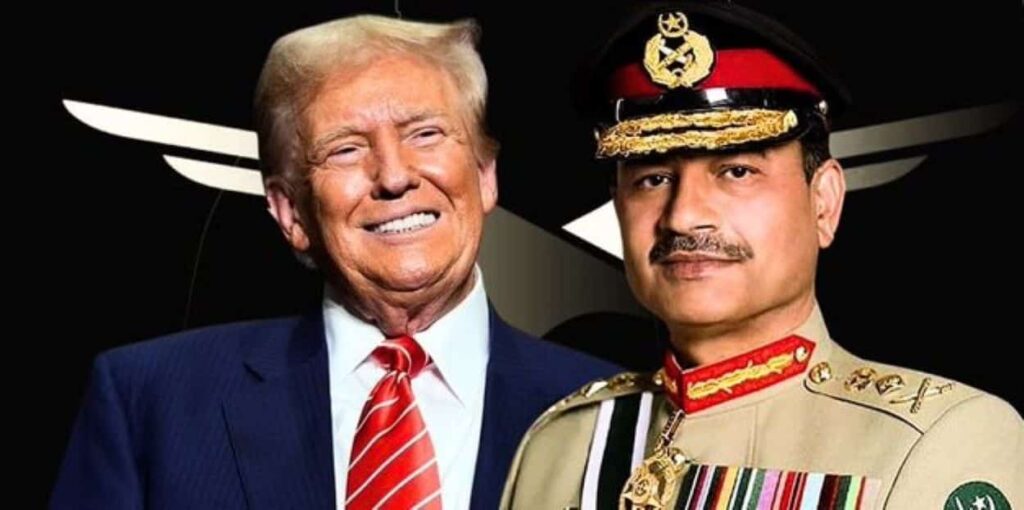
During a press conference in The Hague following a NATO summit, former U.S. President Donald Trump once again lauded Field Marshal Asim Munir, calling him an “impressive and remarkable leader” whose strategic actions halted a potential nuclear conflict between India and Pakistan indiatimes.com+15dailytimes.com.pk+15financialexpress.com+15. Trump emphasized that through his diplomatic intervention—calling both militaries over the phone—he urged them to choose trade, not war, and credited Munir as central to this de-escalation .
Context: Preventing a Nuclear Catastrophe
The remarks follow a heated four-day conflict in early May, triggered by an attack in Indian-administered Kashmir, which brought both nations to the brink of nuclear war. Trump revealed he personally intervened via phone calls and hosted Munir at a private White House luncheon on June 18—the first time a U.S. president caucused with Pakistan’s army chief—highlighting Munir’s instrumental diplomacy .
Strategic Dialogue Beyond the Ceasefire
Their talks extended beyond just the India-Pakistan conflict. Trump and Munir exchanged views on the Iran–Israel crisis, regional stability, trade, economic cooperation, and even cryptocurrency. Trump also noted that both India’s PM Narendra Modi and Munir “decided not to go to war,” underscoring his belief in their leadership roles in the diplomatic resolution.
Geopolitical Reactions & Nobel Peace Prize Nomination
Pakistan has responded by nominating Trump for the 2026 Nobel Peace Prize, lauding his mediation as pivotal in preventing global catastrophe. Meanwhile, India maintains that the ceasefire was a result of direct military communications—not U.S. pressure—leading Modi’s office to reject any external mediation. U.S.–Pakistan ties have warmed, but analysts warn that sustained U.S. engagement may test India–U.S. relations.
About Field Marshal Asim Munir
Appointed Pakistan’s 11th Army Chief in 2022, Munir was elevated to Field Marshal in May 2025—only the second person in Pakistani history to hold this five-star rank. Previously, he served as head of both Military Intelligence and the ISI, and led successful operations during the May conflict, earning national acclaim and the rank promotion.
Why It Matters
This episode illustrates a rare moment where military leadership, diplomacy, and high-level strategic engagement converged to avert a nuclear crisis. Trump’s reiteration of Munir’s role—at international summits and in U.S. public discourse—cements Pakistan’s Army Chief as a key regional influencer. The unfolding narrative also marks a shift in U.S.–Pakistan–India dynamics, with potential ripple effects for strategic relations across South Asia.
